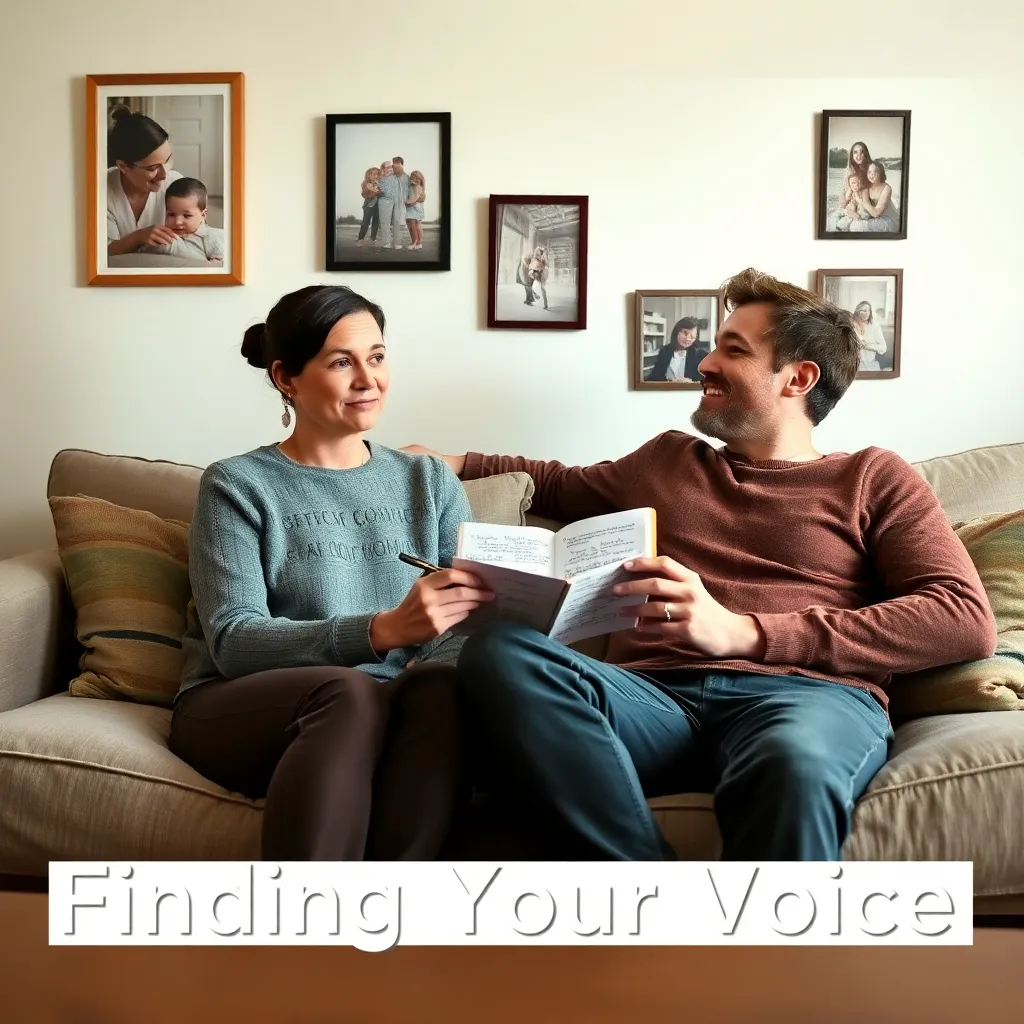Navigating the aftermath of gaslighting can feel like wandering through a dense fog, where clarity seems distant and self-doubt looms large. Recognizing the signs of recovery is not just a step toward healing; it is a testament to your resilience and strength. This journey, while deeply personal, is shared by many who have walked a similar path, and understanding these signs can offer a beacon of hope and reassurance.
Emerging from the shadows of manipulation, victims often grapple with the remnants of confusion and self-questioning. It’s crucial to identify the markers of healing to rebuild trust in oneself and regain a sense of autonomy. In this article, we will explore the subtle yet significant signs that indicate progress, offering insights that empower you to acknowledge and celebrate your growth.
Here, you will discover practical ways to recognize and embrace these signs, fostering a nurturing environment for continued recovery. Our aim is to provide you with the tools and understanding necessary to navigate this complex emotional landscape. As you embark on this journey of rediscovery, remember that each step forward is a victory, and you are not alone in this battle for self-reclamation.
1. Trust in Personal Judgments

When individuals begin to trust their personal judgments again, it signifies a crucial step in healing from gaslighting. They start to distinguish between their own thoughts and the confusion that was previously imposed by their partner.
Consider someone who once doubted every decision they made, from daily choices to major life decisions. Now, they may find themselves confidently selecting a restaurant for dinner or making a career move without second-guessing their intuition.
Experts often note that regaining this trust can be an empowering experience, akin to rediscovering one’s voice. This renewed confidence can foster a healthier and more balanced approach to future relationships.
As trust in personal judgments strengthens, so does the ability to set boundaries and communicate needs effectively. This newfound clarity acts as a foundation for building healthier interactions in future relationships.
2. Confidence in Recalling Events

As individuals begin to recover from gaslighting, they often experience a renewed sense of confidence in recalling events. They start to trust their memories and narratives, which were previously questioned or dismissed by their partners. This newfound clarity allows them to validate their experiences and regain control over their perceptions.
Consider a scenario where someone regularly doubted their own recollections during conflicts. Over time, as they heal, they begin to defend their experiences with increased certainty. This shift is crucial as it empowers them to assert their reality, making them less vulnerable to being manipulated or dismissed.
Experts in relationship recovery emphasize the importance of journaling as a tool to reinforce this confidence. By keeping a written record of events, individuals create a tangible reference that can help ground their memories. This practice not only aids in personal validation but also serves as a powerful reminder of their resilience and growth.
One practical piece of advice is to engage in conversations with trusted friends or family who can affirm their recollections. Discussing events with a supportive network helps reinforce their trust in their memory and provides external validation. These interactions build a safety net that can protect against future attempts at gaslighting.
Ultimately, regaining confidence in one’s ability to recall events is a significant milestone in the healing journey. It reflects a deeper restoration of trust in oneself, paving the way for healthier and more balanced future relationships.
3. Reconnection with Trusted Friends

Reconnecting with trusted friends is a powerful step in the healing process from gaslighting. When individuals rebuild these connections, they often experience a renewed sense of community and support. In many cases, victims of gaslighting may have been isolated or discouraged from maintaining these relationships. Finding the courage to reach out can be transformative, allowing one’s social circle to become a source of strength and validation.
As survivors begin to engage with their friends again, they often find themselves reestablishing trust in their own perceptions. Friends who knew them before the gaslighting experience can offer perspectives that reaffirm their reality. For instance, a friend might remind someone of their past achievements or shared moments, which can help ground the survivor in their true self. This rebuilding of social connections plays a crucial role in rebuilding one’s confidence and self-belief.
Experts in psychology emphasize the importance of having a support network during recovery. Dr. Lisa Feldman, a renowned psychologist, suggests that sharing experiences with empathetic friends can help validate one’s feelings and experiences. These conversations not only heal but also empower individuals to see beyond the distortions of the past. By fostering these relationships, survivors create a safety net that supports their journey towards emotional well-being.
It’s essential to approach this reconnection with patience and openness. Understanding that healing is a gradual process allows individuals to take steps that feel comfortable and right for them.
This gentle approach can lead to fulfilling interactions that reinforce a sense of belonging and love.
4. Emotional Stability Reestablished

After reestablishing connections with trusted friends, individuals often find their emotional stability returning. This shift allows them to experience a renewed sense of self-worth and a more balanced emotional state, which is crucial for healing.
Emotional stability is marked by the ability to recognize and manage one’s feelings with greater ease. As stability reemerges, individuals may notice they are less reactive to stressors that once seemed overwhelming.
Consider the story of Maya, who, after months of turmoil, began practicing mindfulness and journaling daily. This routine helped her reconnect with her inner peace, allowing her to approach relationships with a calm and grounded presence.
According to experts, rebuilding emotional stability can significantly enhance one’s ability to trust and communicate effectively in future relationships. This newfound resilience becomes a foundation for healthier interactions and personal growth.
5. Assertiveness in Conversations

As individuals recover from gaslighting, they often develop a newfound sense of assertiveness in conversations. This transformation is marked by the ability to express thoughts and feelings openly without fear of invalidation. For example, imagine a partner who previously felt silenced now actively participating in discussions, clearly outlining their needs and boundaries. This shift not only empowers them but also fosters a healthier dynamic in their relationships.
Another sign of recovery is the confidence to challenge misleading narratives in conversations. People begin to recognize and question inconsistencies rather than accept them at face value. In a real-world scenario, this might look like someone calmly addressing contradictions in a partner’s story, seeking clarity without hostility. This approach not only strengthens their position but also encourages more honest communication from both parties.
Moreover, recovering individuals learn to set boundaries more effectively. They become adept at communicating what they will and will not tolerate, which can seem daunting at first but ultimately brings peace of mind. For example, someone might tell a friend, “I feel uncomfortable when you dismiss my feelings, and I need you to respect my perspective.” By doing so, they create a safe space for mutual respect and understanding.
Finally, with assertiveness comes resilience, as individuals grow more comfortable in their own skin. They learn to navigate conversations with confidence, knowing that their voice matters. This journey towards assertiveness not only signifies recovery from gaslighting but also lays the foundation for healthier, more balanced relationships. Embracing this change is a powerful step towards long-term emotional stability and personal growth.
Conclusion: Creating Beautiful Outdoor Spaces
In navigating the tumultuous journey of recovery from gaslighting, recognizing the signs of progress is crucial. We’ve explored five key concepts: reclaiming one’s sense of self, establishing healthy boundaries, trusting personal perceptions, seeking supportive relationships, and fostering self-compassion. These are pivotal in rebuilding a foundation of trust and empowerment in your relationships.
As a tangible next step, I encourage you to reflect on your boundaries today. Identify one area where they can be reinforced and communicate this to someone you trust. This proactive step will solidify your path to healing and reinforce your newfound strength.
Remember, rebuilding trust in yourself and others is a gradual process, but every small step counts. To keep these insights handy and remind yourself of the journey you’re on, bookmark this article. It can serve as a valuable resource whenever you need a boost of encouragement or a quick reference to guide your progress.
Looking ahead, embracing these signs of recovery can pave the way for healthier, more fulfilling relationships. With patience and resilience, you’re well on your way to achieving lasting relationship success. Keep moving forward; your journey is both important and inspiring.
